Given the following hierarchy:
class IJobInterface
{
};
class JobAbstract : public IJobInterface
{
public:
JobAbstract(std::string n) : name(n) {};
protected:
std::string name;
};
class JobConcrete: public JobAbstract
{
public:
JobConcrete(std::string n, int i) : JobAbstract(n), index(i) {};
void doIt();
private:
int index;
};
When I need to pass JobConcrete as unique_ptr param inside a lambda function:
void doSomenthigHeavy(std::unique_ptr<JobConcrete> j)
{
j->doIt();
}
void main()
{
auto job = std::make_unique<JobConcrete>("name", 0);
doSomenthigHeavy(std::move(job)); //it works
auto t = std::thread([j = std::move(job)]
{
doSomenthigHeavy(std::move(j)); //it doesn't work
});
}
The question is: what am I missing here?
Calling doSomenthigHeavy from inside a lambda produces a compiler error while from outside it doesn't.
